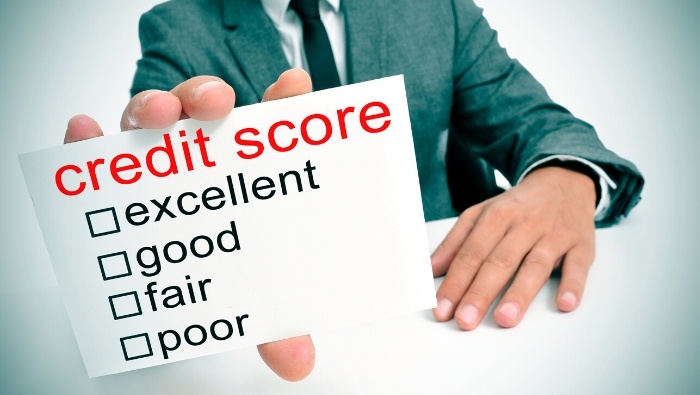7 Monthly Bills Affected by Your Credit Score
Did you know your credit score can affect the amount you pay on some of your monthly bills? If your credit score is less than stellar, make sure you understand the cost of your bad credit.

Here are seven monthly bills with payments your credit score can determine.
1. Rent Payments
When you apply for a lease, your landlord might request a background check that includes your credit report. They can’t run a background check without your permission, although refusing may prevent you from moving forward with the lease.
According to the Federal Trade Commission (FTC), the landlord can take adverse action if they find red flags in your credit report. This action could include denying your rental application or charging you a rent higher than they would charge another applicant. The good news is they are legally required to give you written notice if they take adverse action, provide you the report they used (if you request it within 60 days), and give you the chance to dispute the information.
Related: 10 Clever Ways To Reduce Your Rent
2. Credit Cards
Consumers with good credit tend to qualify for much lower credit card interest rates than those with poor credit. Interest is applied to your credit card balance each month unless you pay it off in full within the monthly grace period. (You can go here to learn more about how credit card interest is calculated.) If you tend to carry a balance month to month, your poor credit could be costing you extra in interest.
Get Help Paying Off Credit Card Debt
Use these guidelines to choose the best plan to pay off your credit card balances.
3. Mortgages
Your mortgage payment is also directly affected by your credit. Mortgage lenders consider you a riskier borrower if you have a lower credit score. To hedge against that risk, they will charge you a higher interest rate.
Sign Up for Savings
Subscribe to get money-saving content by email that can help you stretch your dollars further.
Twice each week, you'll receive articles and tips that can help you free up and keep more of your hard-earned money, even on the tightest of budgets.
We respect your privacy. Unsubscribe at any time.
4. Auto Loans
Credit scores impact the interest rate lenders offer when you apply for an auto loan. While interest rates vary between lenders, having excellent credit generally results in lower interest and a lower monthly payment. Those 0% financing offers you see on car commercials usually require excellent credit.
5. Student Loans
Your credit score doesn’t generally affect federal loan payments, but if you plan on financing your education through private loans, lenders can use your credit score to determine your interest rate and fees. The worse your credit, the more interest you’ll pay on the loan.
6. Auto Insurance
According to The Zebra’s State of Auto Insurance Report, there’s a correlation between credit and car insurance rates. On a national level, drivers with poor credit can pay more than twice as much as those with excellent credit for insurance. Some states have banned insurance providers from using credit scores to determine rates, but it’s a common practice in the states that allow it.
7. Homeowners Insurance
Insurance companies use credit-based insurance scores to determine what you’ll pay for homeowners insurance. These scores are industry-specific and aren’t exactly the same as your credit score, but they use the information in your credit report to determine your score. The same negative marks that bring down your credit score can impact your insurance score and affect your payment.
Given your credit’s effect on nearly every bill in your mailbox (among other things, of course), it’s important to regularly monitor your credit for errors (you can go here to learn how to dispute those), identity theft, or legitimate negative items that are affecting your score. You can pull your credit reports for free at AnnualCreditReport.com and view your free credit report snapshot every month on Credit.com. You can generally improve your bad credit by paying down high credit card balances, shoring up accounts in delinquency, and limiting new credit inquiries while your credit score rebounds.
This article originally appeared on Credit.com.
Reviewed July 2024
About the Author
Brian Acton is a freelance writer and contributor at Credit.com. Several years ago, as he worked to pay down debt and purchase a home, Brian became interested in personal finance and credit. He has been covering these topics ever since. Brian has a BA in History from Salisbury University and an MBA from UMUC. He lives in Maryland with his wife and two dogs. More by Brian Acton.
Sign Up for Savings
Subscribe to get money-saving content by email that can help you stretch your dollars further.
Twice each week, you'll receive articles and tips that can help you free up and keep more of your hard-earned money, even on the tightest of budgets.
We respect your privacy. Unsubscribe at any time.
Popular Articles
On After50Finances.com
- 9 Things You Need to Do Before You Retire
- You Didn’t Save Enough for Retirement and You’re 55+
- When Empty Nesters Reorganize and Declutter Their Home
- Reinventing Your Career in Your 50s or 60s
- What Mature Homeowners Should Know about Reverse Mortgages
- 2 Reasons to Collect Social Security Benefits As Soon As Possible

